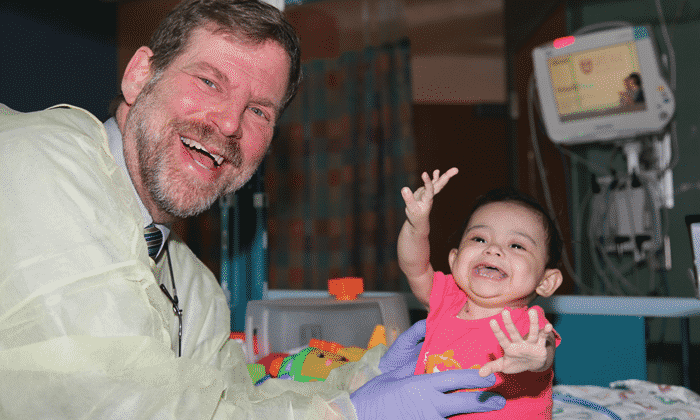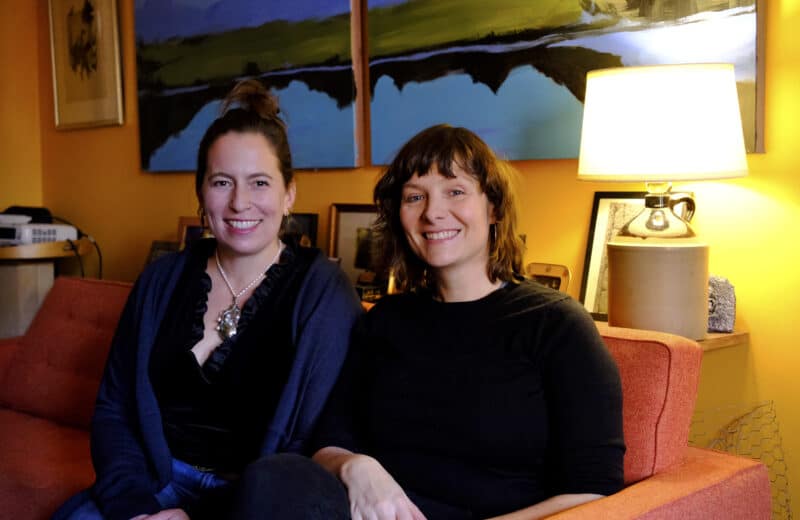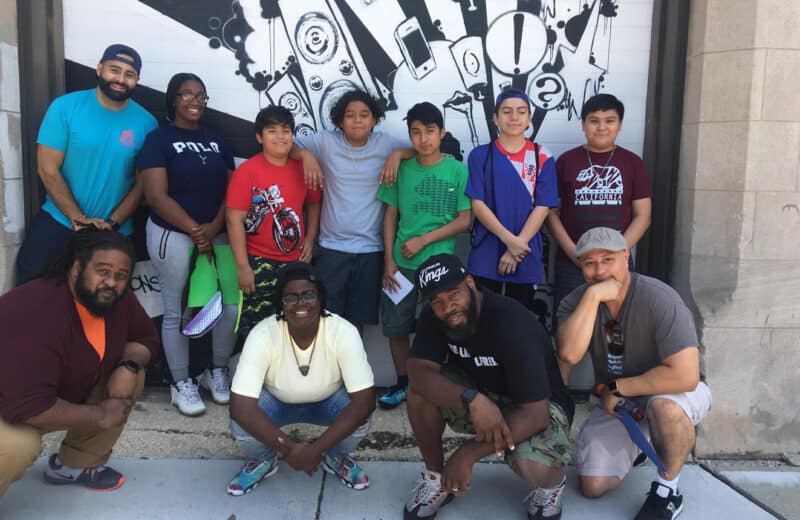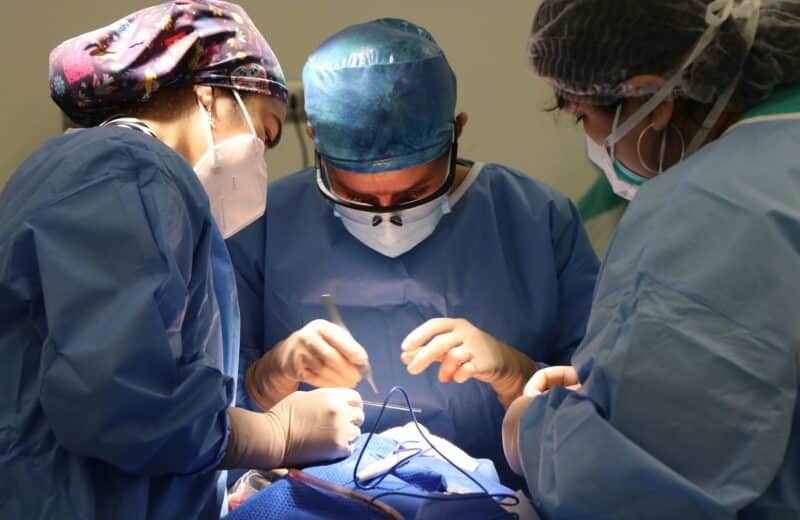Above photo: Daniel Johnson, MD, Comer Children’s Hospital at The University of Chicago Medicine
Chicago boasts several nationally leading pediatric hospitals thanks to a holistic approach to healing
Everyone needs healthcare, and for children—especially those with acute or chronic illnesses—reliable, quality holistic healthcare can mean the difference between simply managing an illness and beating that illness. In national ratings, four of Chicagoland’s pediatric hospitals rank at the top, according to U.S. News and World Report. Chicago leads the way in providing some of the best healthcare via its facilities, practitioners and innovations in care and research. But what does it mean to be considered among the best, and how is quality healthcare for children measured?
According to Joel Johnson, who takes his children to Comer Children’s Hospital at the University of Chicago Medicine (UCM) for regular checkups, it starts the moment they walk through the doors of the facility.
“From the administrative staff checking us in and greeting us, to the physicians, the patient care is always great. They communicate well with [me] and my wife [as to] what their thoughts are,” says Johnson.
He also feels that being part of a larger hospital system affords more resources than smaller community-based clinics that may not have rapid, adequate access. But, Daniel Johnson, MD, section chief of academic and pediatrics at Comer, is working hard to reduce the disparity between smaller clinics and the behemoth that is UCM.
“We work with several community- based organizations to respond to the needs of the community—particularly those located on [Chicago’s South Side]—to develop better access to medical care for children,” says Dr. Johnson.
Recognizing a need to address mental health issues as they relate to the staggering violence in Chicago, Dr. Johnson and his team developed programming directed at raising people’s awareness of the impact that violence has on Chicago’s youth.
Children’s healthcare services need to be multifaceted, says Mark Neiderpruem, hospital administrator at Shriner’s Hospital for Children Chicago.
“And so, we have multidisciplinary teams working in unison so that treatment and care [are] as seamless as possible for the child and the family. Not doing it this way could result in care becoming fragmented.”
Providing quality care on many levels that reflects genuine compassion and concern for the community from a holistic perspective instills a level of confidence that solidifies Comer’s reputation.
Jillian Dine’s son, Clayton, 4½ years old, was diagnosed with type 1 diabetes a little over two years ago. She and her husband knew they were lucky to be in a city with access to superior healthcare options for their child, but they also knew shortly after their initial meeting that Anita Swamy, MD, pediatric endocrinologist at La Rabida Children’s Hospital was the one doctor they wanted as the physician for their child’s care.
“Our first appointment with [Swamy] was more like a, ‘Let’s get to know each other’ discussion versus a doctor/patient visit,” says Dine. “She took Clayton [into] her arms, and I watched him return her hug.”
Expertise, compassionate care and a passion for education is part of the holistic philosophy employed by Swamy at La Rabida. One aspect of this philosophy, she says, is approaching part of the treatment from a psychological point of view. This approach may have lent itself to help La Rabida have the first pediatric diabetes program in Chicago certified by the American Diabetes Association. Not coincidentally, Swamy serves as the medical director of the Chicago Children’s Diabetes Center at La Rabida.
“In addition to medication, we have to consider the psychosocial needs of the family, school-based care for the child with diabetes, nutrition, and the significant education involved in helping families understand this complex disease,” she says.
Javeed Akhter, MD, vice chair of pediatrics and head of pulmonary and immunology divisions at Advocate Children’s Hospital in Oak Lawn, employs a similar approach to caring for his patients with immunodeficiency diseases, which include cystic fibrosis and asthma.
“When the patient comes in, they meet with seven different people,” says Akhter of the holistic treatment plan for cystic fibrosis.
The patient meets with a nurse coordinator, social worker, dietitian, respiratory therapist, physical therapist and child psychologist before Akhter goes in to provide a summary statement.
“Our treatment plan presses further than the recommendations of the Cystic Fibrosis Foundation that funds the program at Advocate, with the addition of the child psychologist and physical therapist,” Akhter says.
Finding a facility that will treat your child whether you are a legal citizen or not is another facet of holistic care, and Loyola University Health System is at the forefront.
“There’s no question there,” says Charles Hemenway, MD, PhD, medical director of the pediatric oncology program at Loyola, when asked about treating undocumented/uninsured children with cancer.
Other facilities reported treating undocumented/uninsured patients on a case-by-case basis, but Hemenway feels that this is what true hospital charity is all about.
“It’s an expensive endeavor, but we do take care of those children,” he says.
Such is the case at Shriner’s Chicago. “We’re sensitive to seeing a child for the first time in a timely fashion—within two weeks of receiving the initial call. If it’s an emergency, we see them that same day. This is all regardless of their ability to pay,” Niederpruem says.
Shriner’s Chicago is one of 22 hospitals of its kind in North America. It specializes in orthopedics, cleft palate and pediatric rehabilitation/spinal cord injury. All of these services are dedicated to children alone. With only three areas of treatment to focus on and no adult patients to tend to, Shriner’s is able to give a uniquely specific kind of care.
“That lends itself to a much better quality of coordinated care,” Niederpruem says. When it comes to surgery, for example, “Having a small intimate team the surgeon can work with everyday can improve the care because the team knows the patient and can give that patient the attention to detail he or she requires.”
Involving nurses, physicians, frontline staff, patients and their families in the design of the new Ann and Robert H. Lurie Children’s Hospital was just one more way to provide care that extends beyond mere treatment of illnesses.
“We’re a very inclusive culture,” says Maureen Mahoney, RN, chief clinical excellence officer at Lurie who planned and oversaw the move from Lincoln Park to Streeterville in 2012.
“It’s cool to be able to say, ‘I was part of this,’” says Timothy Weaver, 19, a lifelong, frequent patient who was selected as a member of the Kids Advisory Board (KAB) during the hospital’s planning stages in 2008.
To reach out to more of the metropolitan area, Lurie Children’s has extended its health- care expertise and delivery to the western suburbs through an affiliation with Central DuPage Hospital, part of Cadence Health System.
For patients who have to spend time within the confines of a hospital rather than playing with friends outside, the hospital can become a second home. If it weren’t for the holistic approaches taken by Chicago’s leading children’s hospitals, those kids might still be getting their treatments, but not the care they need.













